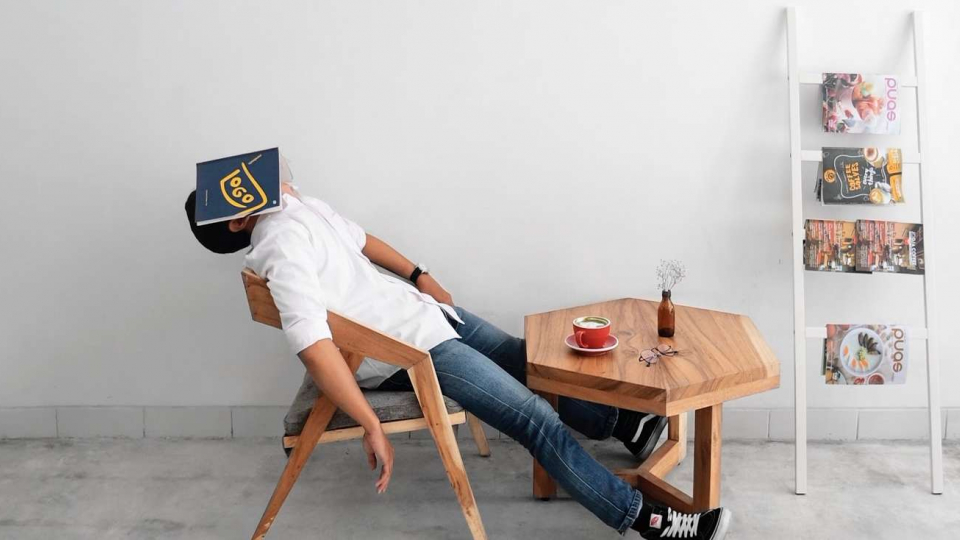Sleep is so weird.
It’s almost like we’re robots – all “turning off” at the same time to plug ourselves in and regenerate.
And if we don’t power down for long enough, we’ll start to short circuit – like your cell phone that moves at a slug’s pace once it goes below 1%.
This short circuit affects everything from our moods to our reflexes to our memory. But did you know that it also makes our brains start having strange cravings?
Like, cravings that make no sense for our long-term survival?
Ok, let me digress for a second…
Sugar Rush
If you’ve lived through a Halloween with kids, you’ve likely had a front row seat to the sleep difficulties a large amount of sugar can bring on. We’re not crazy for hiding that candy (or maybe throwing it out? ?) once the festivities are over. Science is on our side.
One 2016 study followed 2 groups – a group on a restricted low-carb, low-sugar diet and a control group, who ate their average American high-sugar, high fat diets.
The latter group experienced higher sleep latency (it took them longer to get to sleep) and lower quality sleep overall.
Specifically, higher consumption of sugar and saturated fats led to less deep sleep and more arousals (instances of waking up).
So, consuming a lot of sugar means your sleep will be worse and you’ll feel more tired during the day. We maybe could have deduced that one on our own.
But what’s extra weird is, it actually also happens the other way around.
Recent studies show that in the days following sleep deprivation, people actually experience junk food cravings on steroids…
Sleep Patterns
Researcher’s at King’s College London recruited 42 participants for their sleep study.
Each reported getting less than 7 hours of sleep per night on average, prior to the start of the study.
21 of them started a ‘sleep extension plan’ that promoted an increase in their sleep. The other 21 served as a control group and followed their normal sleeping patterns.
All 42 kept food and sleep diaries.
By the end of the test period, nearly every single person who increased their sleep, ate drastically fewer sugars and carbs on a daily basis, when compared to participants in the control group.
What?! Why?!
Because of the short circuit!
When you’re sleep-deprived, your reward centers actually start misfiring. Brain images revealed “an attenuation of brain reward area activity in response to visual food stimuli when humans are fed.”
In other words, when you’re sleep deprived, the physiological state of hunger somehow increases the appeal value of food.
In other other words, chocolate is extra friggin’ irresistible and amazing when we’re tired!
Which is so weird because these types of food don’t actually do anything positive for us. They make us feel even more sluggish and the more we consume over time, the higher our risk for serious cognitive decline.
So… why do our brains do this to us?!
Well, we’re not exactly sure what the answer to that question is, but maybe it’s because it’s the wrong question.
The more pertinent question is, why do we do this to our brains?
The Cycle Consequences
Upon hearing this data, it’s not surprising to learn that a lack of sleep has a direct impact on your oral health.
The Journal of Clinical Periodontology found a “novel, direct and independent association between sleep duration and the prevalence of periodontitis.”
In fact, some research suggests that lack of sleep may be second only to smoking as a risk factor for gum disease.
“So, what do I do?” you ask sluggishly, as candy bar wrappers pile up on your passenger seat…
Get more sleep. Why? Because getting more sleep is a far less daunting task than cutting out sugar (although it can totally be done).
Plus science tells us that once you start sleeping more, your sugar intake will naturally decline over time, without you even trying.
Follow these tips:
- Keep a regular bedtime and a regular wake time – on weekdays and weekends alike.
- Keep technology away from your bed or out of the bedroom altogether. The blue light emitted from electronic devices tends to excite rather than relax.
- Avoid eating after 7pm. Eating late throws off your internal clock.
- Avoid caffeine and alcohol in the evening.
- Consider using supplements such as magnesium, calcium, and glycine for promoting relaxation and sleep.
The last thing you need
If your sleep has been out of whack lately, it’s a good idea to see a dentist.
The correlation between little sleep and tooth decay is high and you don’t need another factor, like tooth pain, contributing to an already tough night’s sleep.
Schedule an appointment with one of our dentists today and go forth and get some sleep!
Article originally published at yournewteethnow.com.

